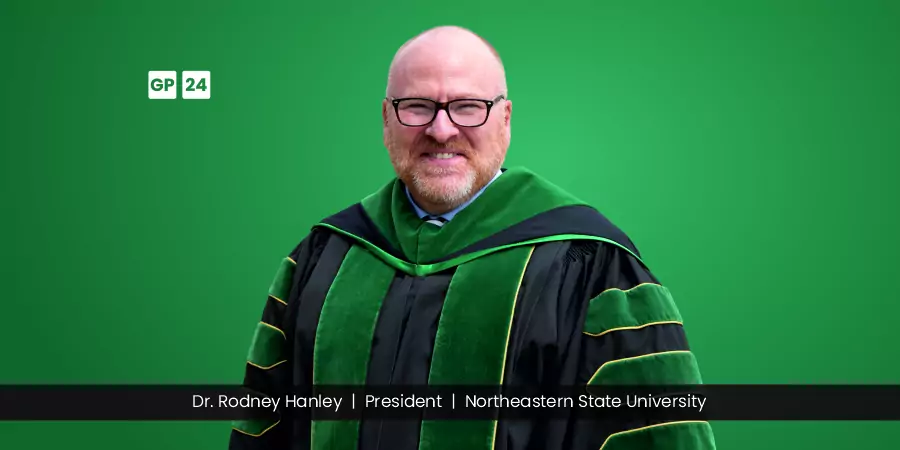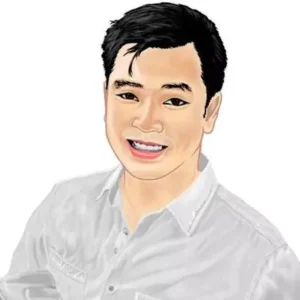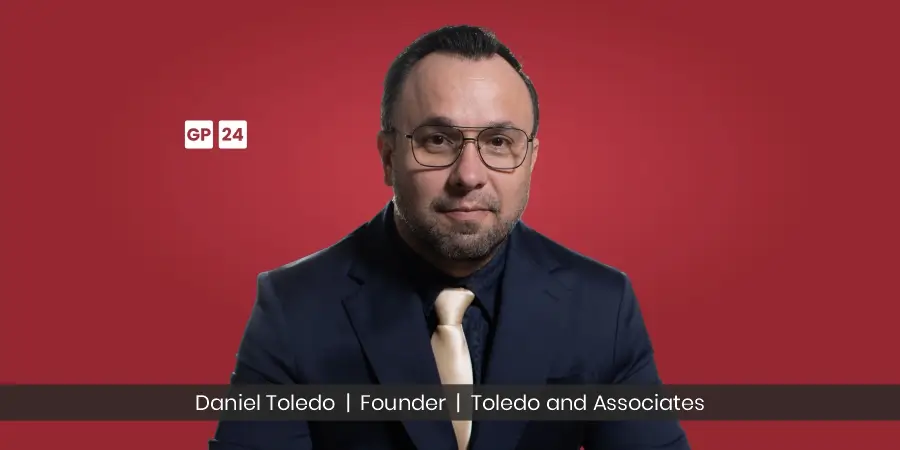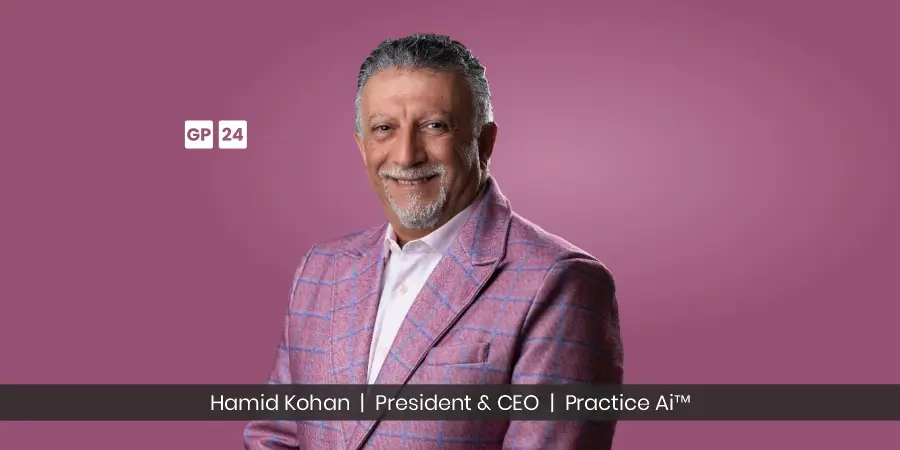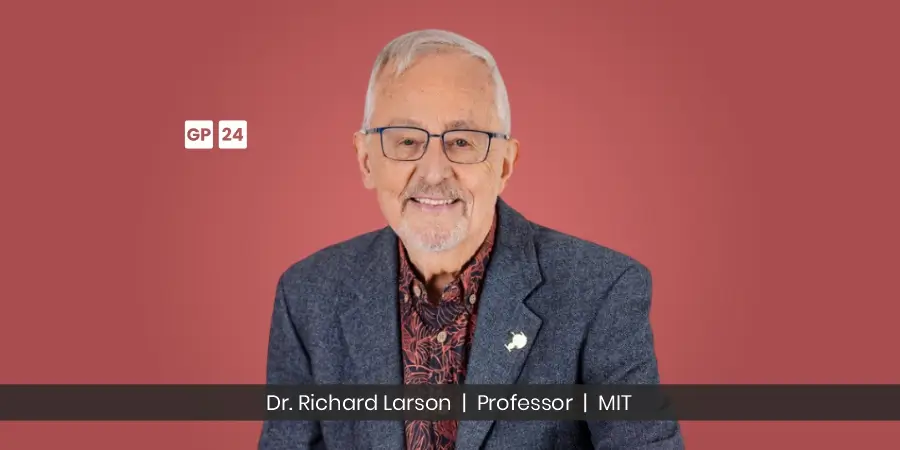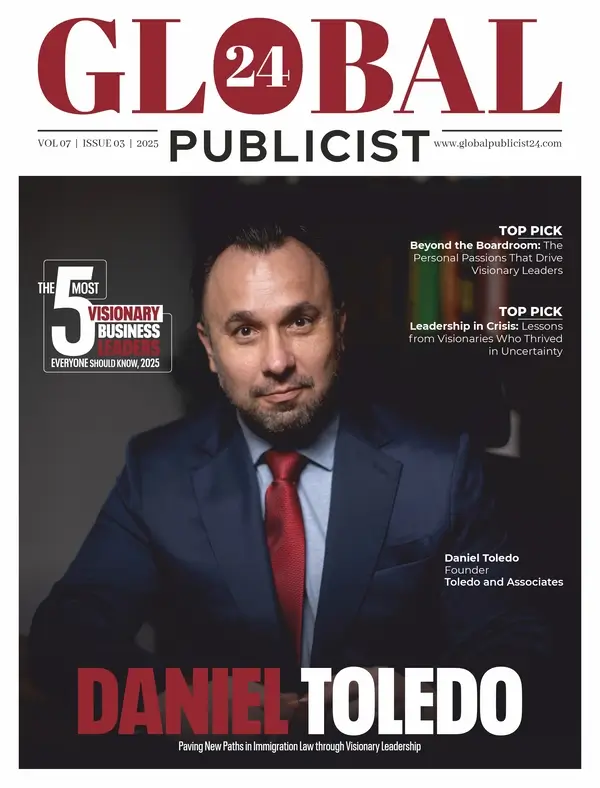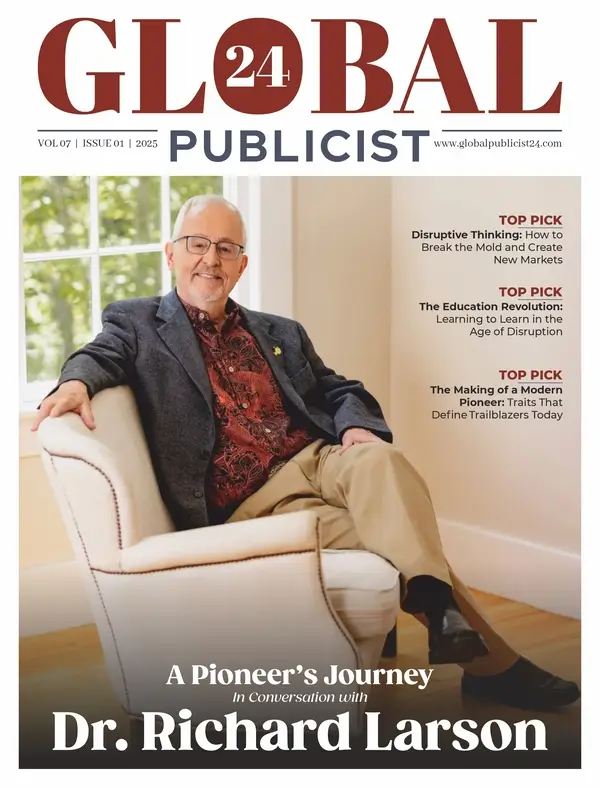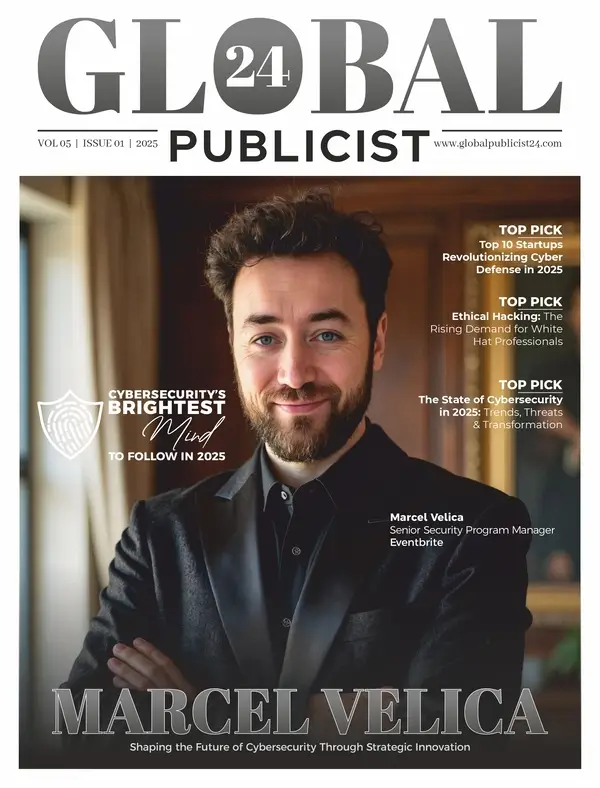Innovation is not just a buzzword. It is the heartbeat of progress, especially in the field of education. It challenges traditions, redefines norms, and paves the way for possibilities that once seemed unimaginable.
For Dr. Rodney Hanley, President of Northeastern State University, innovation is more than a concept; it is a commitment. A commitment to reshaping education to meet the demands of a rapidly changing world, while never losing sight of the people it serves.
At the core of Dr. Hanley’s leadership philosophy lies a profound understanding of education as a transformative force. “Education doesn’t just change an individual life,” he reflects. “It changes the trajectory of entire subsequent generations.”
This belief has guided his efforts to champion inclusivity, empower first-generation students, and position Northeastern State University (NSU) as a model of adaptability and forward-thinking strategies.
But what does it take to lead an institution into the future while addressing the challenges of the present? For Dr. Hanley, the answer lies in balancing innovation with tradition, collaboration with bold decision-making, and technology with the human connection that defines education’s true purpose.
As we delve deeper into Dr. Hanley’s vision and initiatives, one theme becomes abundantly clear: the future of education will belong to those who dare to innovate while keeping humanity at the forefront.
The Making of a Visionary Leader
Dr. Hanley’s path to becoming a transformative figure in education is rooted in humility, perseverance, and an unwavering belief in the power of education to change lives. Growing up in central Illinois, he did not have the advantages of a privileged upbringing. His father worked in a factory, and his mother dedicated herself to being a stay-at-home parent. In such a setting, the idea of pursuing higher education was ambitious, if not daunting.
“I’m a first-generation college student,” Dr. Hanley shares. “When I graduated from high school, I knew I wanted to go to college, but I didn’t know what I wanted to study. Like many first-generation college students, it took me a while to figure out my career.”
This uncertainty was not a roadblock but a steppingstone. With the guidance and encouragement of enthusiastic professors who saw potential in him, Dr. Hanley not only graduated but also went on to pursue graduate studies. Each step brought him closer to a clear vision: to use his experiences as a first-generation student to uplift others from similar backgrounds.
“One of the common themes throughout my career has been helping students like me,” Dr. Hanley explains. “These students often have different needs, but their pathway is no less important than anyone else’s. That’s been a driving force for me.”
His passion for serving the underserved population became the cornerstone of his professional journey. From teaching to taking on leadership roles, Dr. Hanley has always chosen to work in institutions that cater to students from financially disadvantaged backgrounds. This focus has allowed him to shape policies and programs that make higher education accessible, equitable, and impactful.
Today, as the President of Northeastern State University, he continues to honor this mission, ensuring that NSU remains a beacon of opportunity for students from all walks of life. Dr. Hanley’s story is a testament to the transformative power of education—not just for those who receive it but for those who champion it.
Redefining Leadership in Education
Leadership in higher education is a complex and multifaceted endeavor, requiring a delicate balance between vision, collaboration, and the ability to navigate uncharted waters. For Dr. Hanley, being a visionary leader in education is about more than making decisions. It is about fostering an environment where innovation and inclusivity thrive.
“A visionary leader does a number of different things, the first of which is to rely on people around them to help examine the ecosystem they’re in,” Dr. Hanley explains. He underscores the importance of understanding the unique context of a university and how its challenges and opportunities are interconnected.
Higher education is inherently intricate, encompassing financial management, academic excellence, research initiatives, and community engagement. “It’s impossible for one person to have their arms around the entire set of issues,” Dr. Hanley admits. “That’s why it’s essential for a leader to have the humility to listen to team members and rely on others in their areas of expertise.”
Central to Dr. Hanley’s leadership philosophy is the ability to look beyond the immediate horizon and identify emerging trends and challenges. He believes that universities cannot afford to rely solely on past traditions or customary practices. Instead, they must consciously adapt to new realities to remain relevant and impactful.
“There’s danger for a university if it relies on past traditions and responds to new challenges in an unexamined way,” Dr. Hanley warns. “On balance, I have consciously led my institutions to be adaptable, ensuring they are well-positioned to face the future.”
At NSU, this adaptability is visible in the strong relationships Dr. Hanley fosters among administration, faculty, and staff. He views these connections as the foundation for meaningful collaboration and the driving force behind the institution’s success.
Leadership, as Dr. Hanley sees it, also involves embracing both successes and failures. Each experience offers valuable lessons that inform future decisions. “Like anyone else, I’ve had successes and failures,” he reflects. “But through it all, I’ve focused on creating an environment where innovation is not only encouraged but expected.”
Pioneering Initiatives at NSU
Under Dr. Hanley’s leadership, NSU has become a hub for groundbreaking programs that address the diverse needs of its students and the communities it serves. These initiatives reflect his dedication to innovation, inclusivity, and adaptability.
One of the most transformative programs launched under his tenure is the Direct Admit initiative, a partnership with local high schools that provides automatic admission to NSU for students who graduate in good standing. This initiative eliminates barriers to college access and encourages high school students to envision a future in higher education early on.
Recognizing the shifting demographics of potential students, Dr. Hanley has also prioritized outreach to adult continuing learners, a group he describes as the largest pool of potential students in the United States.
These are individuals who may have started college years ago but, for various reasons, did not complete their degrees. NSU’s innovative programs reach out to these learners, offering them tailored support to resume their education and achieve their career goals. “They might be ready to come back to the university and finish their degree to get that promotion or move up in their career,” Dr. Hanley explains.
Another area of focus is international student recruitment. Dr. Hanley has spearheaded efforts to expand NSU’s global reach, seeing the strong demand for an American education. Over the past year, these efforts have yielded remarkable results, with international enrollment increasing by an impressive 164%.
“The idea of an education from an American university is highly desirable around the world,” he notes, reflecting on the growing interest from students abroad.
Dr. Hanley’s commitment to relevance in education extends to the academic programs themselves. He consistently challenges faculty to ensure that their offerings align with workforce needs and modern career demands. “We’re adding new academic programs focused on workforce readiness in the state of Oklahoma,” he shares. This alignment not only enhances the employability of graduates but also strengthens the university’s ties to the regional economy.
A major project currently underway at NSU is the construction of the Oklahoma College of Optometry, a facility Dr. Hanley believes will set a national benchmark. “I believe this is going to be one of the finest optometry facilities anywhere in the United States when it’s completed,” he says with enthusiasm. The new college reflects NSU’s commitment to providing state-of-the-art resources for both students and the communities they will serve.
The results of these initiatives are clear. Over the past year, NSU has achieved a 4% increase in overall enrollment, a testament to the university’s ability to adapt and thrive under Dr. Hanley’s leadership.
A Vision for the Future of Education
From advancements in technology to shifts in student preferences, the traditional model of universities is being redefined at a swift pace. For Dr. Hanley, this evolution represents both a challenge and an opportunity; a chance to innovate while staying true to the core mission of education.
“Thirty years ago, the standard model of a university was a residential model,” Dr. Hanley observes. “But today, students can choose to earn a degree online. The changes are happening so fast, whether it’s with technology, the advancement of AI, hybrid courses, or the ability to choose between in-class and online learning. Society’s expectations for higher education are rapidly changing.”
Dr. Hanley’s approach to navigating this dynamic landscape is rooted in adaptability. He emphasizes the importance of positioning institutions like Northeastern State University to respond quickly to emerging challenges. For him, this means fostering a collaborative environment where administration, faculty, and staff work as a cohesive team to address the needs of students and the workforce.
“I’ve always tried to push my institutions to be at the leading edge of innovation,” Dr. Hanley explains. “A highly functional team and maintaining excellent relationships within the university allow us to respond to issues effectively.”
One of the cornerstones of his vision is to ensure that academic offerings remain relevant to modern career demands. This involves a continual review of curricula by deans, department chairs, and faculty to align with the needs of today’s workforce. Dr. Hanley believes that institutions that can adapt quickly to these changes will thrive in the future.
A Catalyst for Change
Technology today has become a transformative force, reshaping how knowledge is delivered and consumed. For Dr. Hanley, staying ahead of technological advancements is essential to maintaining NSU’s relevance and impact in an increasingly digital world.
“When I was an undergraduate, the internet wasn’t a thing,” Dr. Hanley reflects. “Now, not only is the internet completely woven into our education system and culture, but artificial intelligence is emerging as the leading edge.” Recognizing this shift, Dr. Hanley has made it a priority to position NSU at the forefront of technological integration.
One of his key focuses is the integration of artificial intelligence (AI) into the university’s academic offerings. Dr. Hanley is particularly enthusiastic about how AI can enhance the classroom experience.
“AI can quickly analyze extremely large data sets within seconds and give a summary of the data,” he explains. This capability opens doors to asking and answering intellectual questions that were previously out of reach.
Beyond AI, Dr. Hanley views technology as a means to foster innovation across all facets of the university. From hybrid learning models to tools that support faculty in curriculum development, NSU is embracing a future where technology enhances—not replaces—the human element of education.
However, Dr. Hanley acknowledges the inherent risks of technological integration. “There’s always a risk to being on the leading edge of integration of technology and education,” he says. “But with a thoughtful approach and appropriate safeguards in place, I’m convinced that NSU will thrive going into the future.”
Overcoming Adversities
“There’s no lack of challenges that higher education faces,” Dr. Hanley states candidly. He highlights a range of issues, including funding constraints, aging infrastructure, employee compensation, and deferred maintenance. However, one of the most pressing concerns for him is the disparity in access and success for students from disadvantaged backgrounds.
“We have so many people in society who are left behind when it comes to higher education,” he observes. “These are typically first-generation or financially disadvantaged students from rural areas. It is so difficult for these students to navigate higher education and persist all the way to graduation.”
Dr. Hanley views this as a critical mission for universities. At NSU, he has championed programs and policies that address these inequities, ensuring that students who come from underserved communities have the support they need to succeed. “Going to college and getting a degree will change a life,” he asserts. “But it’s more than that—it changes the trajectory of entire subsequent generations.”
Despite the complexities of navigating these issues, Dr. Hanley remains optimistic about the power of higher education to drive societal progress. For him, the challenges facing universities today are a call to action. These challenges are a reminder of the vital role they play in shaping not just individual lives but the future of communities and nations.
Towards New Horizons
As NSU continues to evolve under Dr. Hanley’s leadership, the institution’s future is guided by a clear and ambitious roadmap. Over the next three years, he has set forth strategic priorities aimed at expanding the university’s reach, refining its academic offerings, and deepening its impact on the communities it serves.
At the heart of these goals is the mission to broaden NSU’s enrollment base. Dr. Hanley envisions reaching more students from diverse backgrounds, including those from rural communities, transfer students, international learners, and adult continuing learners.
“We are working on expanding our enrollment base at the institution through outreach to these groups,” he explains. By building robust pipelines to bring students from these demographics to NSU, the university not only grows its student body but also strengthens its role as an inclusive and accessible institution.
Student engagement is another cornerstone of Dr. Hanley’s vision. He believes that fostering a vibrant campus life is critical to attracting and retaining students. “We’re interested in looking at student activities to reinforce what draws students here,” he says. Whether through clubs, athletics, or other extracurricular initiatives, NSU aims to create an environment where students are not only academically engaged but also socially fulfilled.
NSU’s multi-campus structure presents unique opportunities to tailor its offerings to the specific needs of different communities. With campuses in Tahlequah, Muskogee, and Broken Arrow, Oklahoma, each serving distinct populations, Dr. Hanley is committed to ensuring that all students receive the support and resources they need. “We’re doing everything in our power to accommodate student needs and respond to workforce needs of those communities,” he emphasizes.
Underlying all these goals is Dr. Hanley’s unwavering belief in the transformative power of education. “Everyone deserves the opportunity to craft their own future,” he asserts. At NSU, this philosophy shapes every decision, from expanding access to higher education to fostering a campus culture that prioritizes inclusivity and success.
Looking ahead, Dr. Hanley’s vision for NSU is one of growth, innovation, and resilience. By building on the university’s strengths and embracing opportunities for improvement, he is ensuring that NSU continues to thrive as a dynamic and impactful institution.

